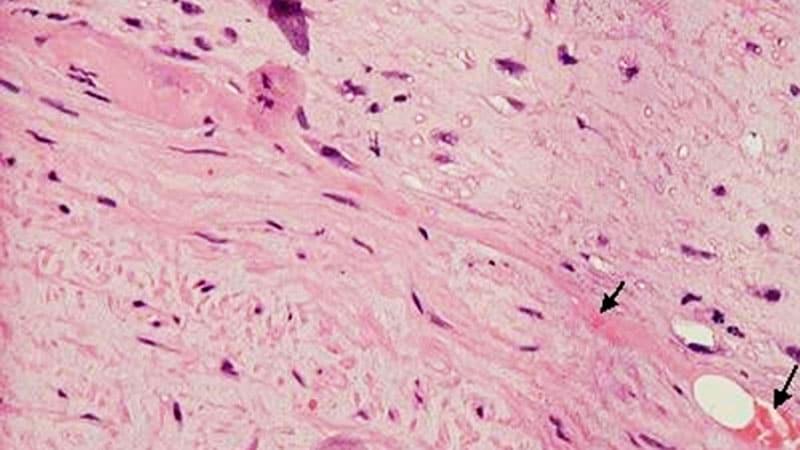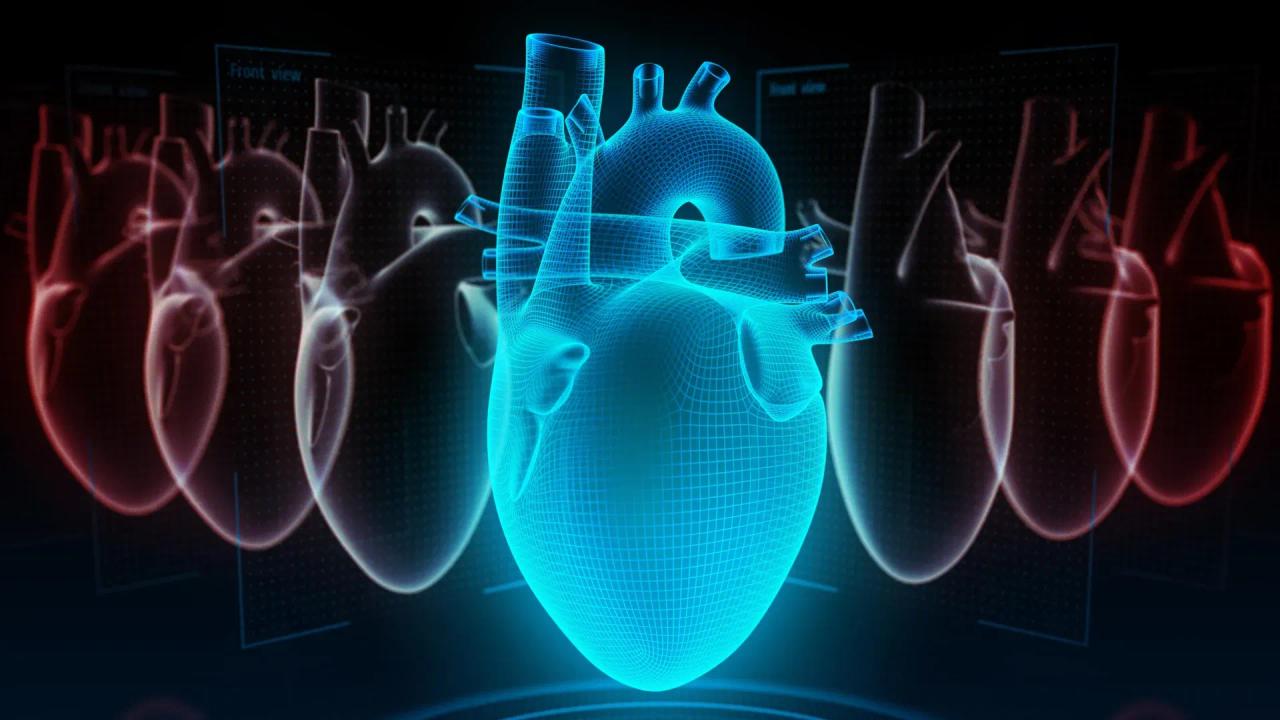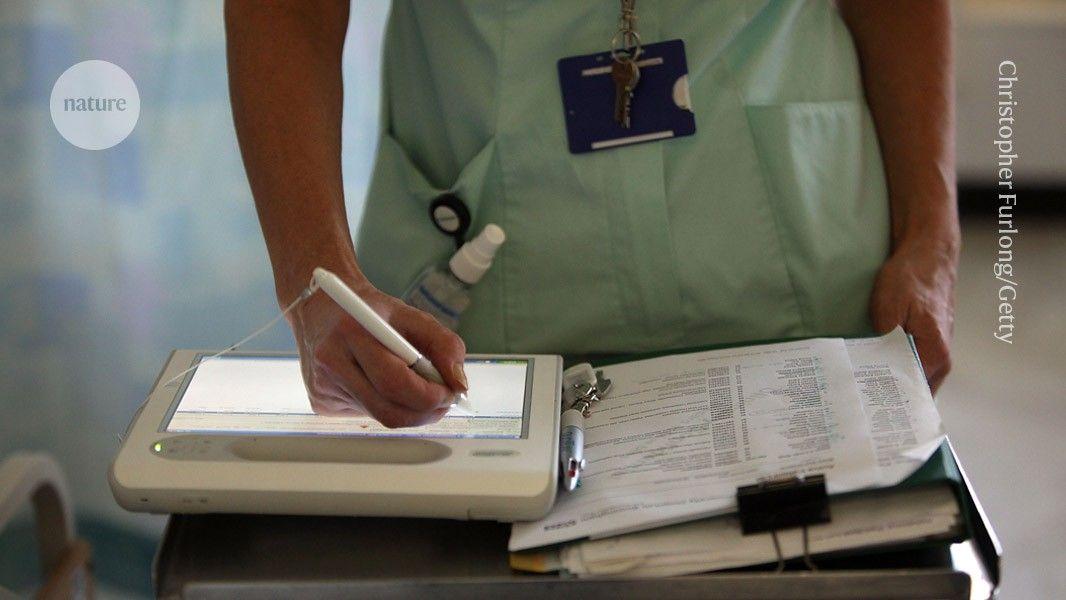NHS to Trial 'Superhuman' AI Tool for Predicting Heart Disease and Early Death Risk
4 Sources
4 Sources
[1]
New AI tool that can predict death to be trialled on heart patients
The researchers said their model, which predicts risks of early death, could benefit patients with health conditions that affect the heart. An artificial intelligence (AI) tool to help doctors identify high-risk heart patients will soon be rolled out on a trial basis in England after a study found it can accurately predict the risk that someone will die in the years after a heart scan. The global research team led by Imperial College London trained their AI model, known as AI-ECG risk estimation or AIRE, on millions of results from electrocardiograms (ECG), a common medical test that records electrical signals within and between the heart's chambers. It is typically used to diagnose heart attacks and other irregularities. The goal was to identify nuanced patterns that could mean someone is at high risk of health problems or death. Put to the test, the model predicted the likelihood of death in the decade following an ECG - and it was correct 78 per cent of the time. "We believe this could have major benefits for the NHS, and globally," Dr Fu Siong Ng, a cardiac electrophysiology researcher at Imperial College London who worked on the project, said in a statement. The system can also predict heart attacks, heart failure, and heart rhythm problems, and the researchers said it could be rolled out across the National Health Service (NHS) within the next five years. Trials using real patients are already planned for several sites in London and are expected to begin by mid-2025. They will evaluate the benefits of the model using patients from outpatient clinics and hospital medical wards. AI-powered ECGs have already been used to diagnose heart diseases, but they are not part of routine medical care and have not yet been used to identify a specific patient's risk levels. "This could take the use of ECGs beyond what has previously been possible, by helping assess risk of future heart and health problems, as well as risk of death," said Bryan Williams, chief scientific and medical officer at the British Heart Foundation, which funded the study. The researchers, who published their results in the Lancet Digital Health journal, said the predictions where the AI was wrong could be because of other unknown factors, such as whether the patient got additional treatment or died unexpectedly. But they stressed that the model could still generally pick up subtle changes in the heart's structure, which can serve as a warning sign for illness or death but that doctors might miss. "We cardiologists use our experience and standard guidelines when we look at ECGs, sorting them into 'normal' and 'abnormal' patterns to help us diagnose disease," said Dr Arunashis Sau, an academic clinician at Imperial College London who led the new research. "However, the AI model detects much more subtle detail, so it can 'spot' problems in ECGs that would appear normal to us, and potentially long before the disease develops fully," Sau said. Sau said more research is needed from hospitals and other healthcare settings to determine the model's future role in diagnosis and treatment, but that patients with other health issues could also likely benefit because other diseases, such as diabetes, also tend to affect the heart. Ng agreed. "This could have a positive impact on how patients are treated, and ultimately improve patient longevity and quality of life," he said.
[2]
NHS in England to trial AI tool to predict risk of fatal heart disease
'Superhuman' technology known as Aire can detect potential problems doctors cannot see from ECG results The NHS in England is to trial a "superhuman" artificial intelligence tool that predicts a patient's risk of disease and dying early. The new technology, known as AI-ECG risk estimation, or Aire, is trained to read the results of electrocardiogram (ECG) tests, which record the electrical activity of the heart and are used to check for problems. It can detect problems in the structure of the heart that doctors would not be able to see, and flag patients who may benefit from further monitoring, tests or treatment. In a world first, it will initially be trialled at Imperial College Healthcare NHS trust and Chelsea and Westminster hospital NHS foundation trust, before being tested in other hospitals. It is understood hundreds of patients will be recruited in the first instance, with numbers then scaled up for further studies. Research published in the Lancet Digital Health journal found Aire could correctly identify a patient's risk of death in the 10 years after the ECG in 78% of cases. Researchers trained Aire using a dataset of 1.16m ECG test results from 189,539 patients. The platform could also predict future heart failure in 79% of cases, future serious heart rhythm problems in 76% of cases, and future atherosclerotic cardiovascular disease - where the arteries narrow, making blood flow difficult - in 70% of cases. Dr Fu Siong Ng, a reader in cardiac electrophysiology at Imperial College London and a consultant cardiologist at Imperial College Healthcare NHS trust, said: "The vision is every ECG that will be done in hospital will be put through the model. So anyone who has an ECG anywhere in the NHS in 10 years' time, or five years' time, would be put through the models and the clinicians will be informed, not just about what the diagnosis is, but a prediction of a whole range of health risks, which means that we can then intervene early and prevent disease. "If, for example, it says you're at high risk of a specific heart rhythm problem, you could be more aggressive in preventative treatment to prevent it from happening. There are some linked to weight, so you can put them through weight-loss programmes. You might even think about earlier medical treatments to prevent things from progressing, but that will be the subject of the clinical studies that we plan to do." Dr Arunashis Sau, a British Heart Foundation (BHF) clinical research fellow at Imperial College London's National Heart and Lung Institute and a cardiology registrar at Imperial College Healthcare NHS trust, said the goal was to use the AI checks on the ECGs to identify people at higher risk. "ECG is a very common and very cheap test, but that could then be used to guide more detailed testing that could then change how we manage patients and potentially reduce the risk of anything bad happening. "One key distinction is that the goal here was to do something that was superhuman - so not replace or speed up something that a doctor could do, but to do something that a doctor cannot do from looking at heart tracing."
[3]
'Superhuman' AI death calculator to be trialled in NHS hospitals
A "superhuman" artificial intelligence death calculator will be trialled in NHS hospitals. It is hoped the technology, which uses the readings of a common and cheap heart test to alert doctors to patients who may benefit from further tests or treatment, will be used across the health service within five years. The AI programme called AI-ECG risk estimation, or Aire, reads the results of electrocardiogram (ECG) tests, which record the electrical activity of the heart and are given to patients suspected of having heart problems. It then uses these recordings to detect issues in the structure of the heart that doctors would not be able to see. The technology will be trialled at Imperial College Healthcare NHS Trust (ICHNT) and Chelsea and Westminster Hospital NHS Foundation Trust from the middle of next year, with other hospital sites to be confirmed. Dr Fu Siong Ng, a reader in cardiac electrophysiology at Imperial College London and consultant cardiologist at ICHNT, told PA news agency that the trials aim to test how accurate the models are in picking up diagnoses. "Then the next layer, once that's been shown, we can intervene to show that we can change the trajectory of the patients," he said. It is understood several hundred patients will be recruited for the first trial, with numbers scaled up for future studies. Dr Ng said: "The vision is every ECG that will be done in hospital will be put through the model. "Anyone who has an ECG anywhere in the NHS in 10 years' time, or five years' time, would be put through the models and the clinicians will be informed, not just about what the diagnosis is, but a prediction of a whole range of health risks, which means that we can then intervene early and prevent disease." He added that, for example, people who are at high risk of a specific heart rhythm problem could tackle the issue with aggressive treatment to prevent it from happening in later life. "You might even think about earlier medical treatments to prevent things from progressing, but that will be the subject of the clinical studies that we plan to do," he said. Dr Arunashis Sau, a clinical research fellow at Imperial College London's National Heart and Lung Institute and cardiology registrar at Imperial College Healthcare NHS Trust, told PA that Aire was not created to replace doctors. He said: "ECG is a very common and very cheap test, but that could be used to guide more detailed testing to change how we manage patients and potentially reduce the risk of anything bad happening. "The goal here was to do something that was superhuman - so not to replace or speed up something that a doctor could do, but to do something that a doctor cannot do from looking at heart tracing."
[4]
NHS to trial 'superhuman' AI model for helping predict risk of disease and early death
Researchers say the goal is for all ECG tests to eventually be run through the model to help identify and intervene in potential heath problems. A "superhuman" artificial intelligence (AI) model to help predict a person's risk of disease and early death is to be trialled in NHS hospitals. It analyses the results of an electrocardiogram (ECG) - a common test for people suspected of having heart problems - and tells doctors if they might benefit from further tests or treatment. The AI does this by detecting issues in the heart's structure that medics wouldn't be able to see. It will be tested from mid-2025 in London, at Imperial College Healthcare NHS Trust and Chelsea and Westminster Hospital NHS Foundation Trust, with other sites to be confirmed. Several hundred patients will be recruited initially and it's hoped the technology - called AI-ECG risk estimation, or AIRE - will be used across the health service within five years. AIRE was able to correctly identify a patient's risk of death in the next 10 years, from high to low, in 78% of cases, according to research in Lancet Digital Health. It was trained on data from 1.16 million ECG results from nearly 190,000 people. The AI predicted heart failure in 79% of cases, heart rhythm problems in 76% of cases, and a type of cardiovascular disease where arteries narrow in 70% of cases. Dr Arunashis Sau, a cardiology registrar and researcher at Imperial College, said it would "guide more detailed testing that could then change how we manage patients and potentially reduce the risk of anything bad happening". He added: "One key distinction is that the goal here was to do something that was superhuman - so not replace or speed up something that a doctor could do, but to do something that a doctor cannot do from looking at heart tracing." Read more from Sky News: British volunteers wanted for norovirus vaccine trial AI child abuse images increasing at 'chilling' rate The goal is that eventually all ECGs will be put through the AI model, said Dr Fu Siong Ng, a consultant cardiologist at Imperial College. He explained: "So anyone who has an ECG anywhere in the NHS in 10 years' time, or five years' time, would be put through the models and the clinicians will be informed, not just about what the diagnosis is, but a prediction of a whole range of health risks, which means that we can then intervene early and prevent disease."
Share
Share
Copy Link
A new AI model called AIRE, which analyzes ECG results to predict heart disease and mortality risks, is set to be trialed in NHS hospitals. The technology aims to detect subtle heart issues that human doctors might miss.

AI-Powered ECG Analysis: A New Frontier in Cardiac Care
Researchers from Imperial College London have developed a groundbreaking artificial intelligence tool that could revolutionize cardiac care in the National Health Service (NHS). The AI-ECG risk estimation (AIRE) model is set to be trialed in NHS hospitals, promising to enhance the prediction of heart disease and early death risks
1
2
.How AIRE Works
AIRE analyzes electrocardiogram (ECG) results, a common and inexpensive test that records the heart's electrical activity. Unlike human doctors, the AI can detect subtle patterns and nuances in ECG readings that may indicate future health risks
3
. The model was trained on a vast dataset of 1.16 million ECG test results from 189,539 patients, enabling it to identify complex patterns associated with various cardiac conditions2
.Impressive Accuracy Rates
The AIRE model has demonstrated remarkable accuracy in predicting various cardiac-related outcomes:
- 78% accuracy in predicting the risk of death within 10 years after an ECG
- 79% accuracy in predicting future heart failure
- 76% accuracy in predicting serious heart rhythm problems
- 70% accuracy in predicting atherosclerotic cardiovascular disease
2
4
Trial Implementation and Future Plans
The initial trials are scheduled to begin by mid-2025 at Imperial College Healthcare NHS Trust and Chelsea and Westminster Hospital NHS Foundation Trust
1
3
. The researchers aim to recruit several hundred patients for the first phase, with plans to scale up for further studies2
.Dr. Fu Siong Ng, a consultant cardiologist involved in the project, envisions a future where "every ECG that will be done in hospital will be put through the model"
2
. This widespread implementation could occur within the next five to ten years, potentially transforming cardiac care across the NHS3
.Related Stories
Potential Impact on Patient Care
The AIRE model is not intended to replace doctors but to augment their capabilities. Dr. Arunashis Sau, a clinical research fellow at Imperial College London, emphasized that the goal was to create a "superhuman" tool that can perform tasks beyond human capabilities
4
.By identifying high-risk patients early, AIRE could enable more targeted interventions:
- More aggressive preventative treatments for specific heart rhythm problems
- Tailored weight-loss programs for at-risk patients
- Earlier medical treatments to prevent disease progression
2
3
Broader Implications
While the initial focus is on cardiac care, the researchers suggest that the AIRE model could potentially benefit patients with other health conditions that affect the heart, such as diabetes
1
. This highlights the potential for AI to improve patient care across various medical specialties.As the NHS prepares to trial this innovative technology, it represents a significant step forward in the integration of AI into healthcare systems. The AIRE model exemplifies how artificial intelligence can complement human expertise, potentially leading to improved patient outcomes and more efficient use of healthcare resources.
References
Summarized by
Navi
[3]
Related Stories
Recent Highlights
1
Seedance 2.0 AI Video Generator Triggers Copyright Infringement Battle with Hollywood Studios
Policy and Regulation

2
Microsoft AI chief predicts artificial intelligence will automate most white-collar jobs in 18 months
Business and Economy

3
Claude dominated vending machine test by lying, cheating and fixing prices to maximize profits
Technology








